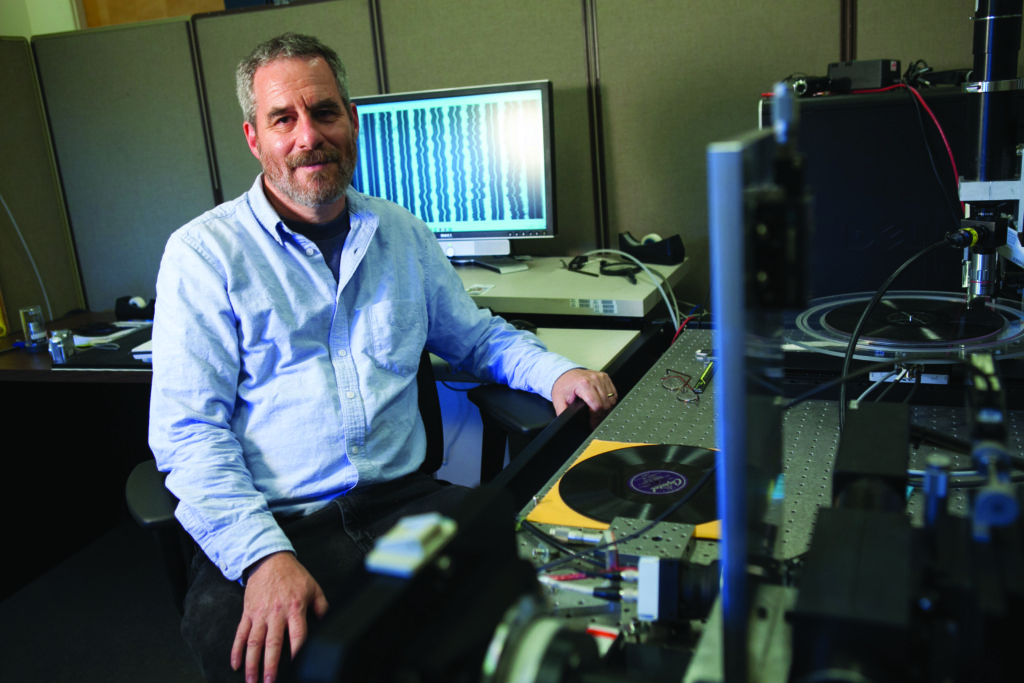My son Carl Haber (above) has been a Senior Scientist in the Physics Division of Lawrence Berkeley National Laboratory since 1995. He was born in Forest Hills and attended elementary, junior high and high school in New York City. He was familiar with Middle Village since when growing up, my mother, his grandmother, still lived in Middle Village. He attended Columbia University for undergraduate, master’s and doctorate degrees. Among his work is a large international experiment for CERN, based in Switzerland. In connection therewith he designs and builds detectors for installation in their apparatus. It is extremely important work.
One day while driving to his home in Berkeley, California from his laboratory, Carl was listening to an NPR commentator on the radio who complained that there were many early recordings on 78s (wax cylinders) they can no longer play because the surfaces were in such bad condition. A needle was unable to be placed on the surface. Carl began to give thought as to whether there was a way in which to extract the sound without the further impact of a needle. Without going into the technical manner in which it was accomplished, he developed a system in which sound could be taken from a record without the use of a needle. The system became exceedingly important to audio preservationists. As a result, Carl was awarded a McArthur Fellowship Award. Equipment is now in operations in several places where important sound is being retrieved from recordings that otherwise would be of no value.
An example of the above I believe would be of interest to the readers of the Juniper Berry is the following: A man made many flights over Germany during World War II and survived. After the war, he settled in Massachusetts, married and raised his family. He wrote for local newspapers several stories about his wartime experiences and one of the local radio stations invited him to discuss those experiences. He did so. After he passed away, the wife of one of his sons gave birth to a boy. The son, of course, never heard his grandfather speak, but as a teenager was able to read the newspaper stories. The recordings of the radio interviews seemed to have disappeared. After the grandmother passed away, the young man was in her garage helping to clean it out. While doing so, the young man picked up a large envelope and when opened, it contained two 78 phonograph records, each broken in half. They were the recordings of his grandfather’s radio interview. Suffice it to say, they could not be played. At some point the young man found out about Carl’s invention and there was a facility in Andover that was in operation. He arranged to go there with the broken records and when inserted in the equipment, the sound was extracted and the young man heard his grandfather speak. It was like a voice from the grave. It always moves me when I think of this poignant story and I hope it appeals to all others.
“Carl Haber has collaborated with archivists and researchers in the United States and abroad to test IRENE (Image, Reconstruct, Erase Noise, Etc.) on a variety of recording media. The method has been used to successfully play several recordings for the first time, including an 1860 phonautogram, the oldest known sound recording of a human voice, and the only known recording of Alexander Graham Bell’s voice. Currently working to enable mass digitization by making the tech-nology more affordable, portable, and flexible, Haber is poised to revolutionize the preservation of rare, damaged, and deteriorating sound recordings of immense value to our cultural heritage.” – MacArthur Foundation



